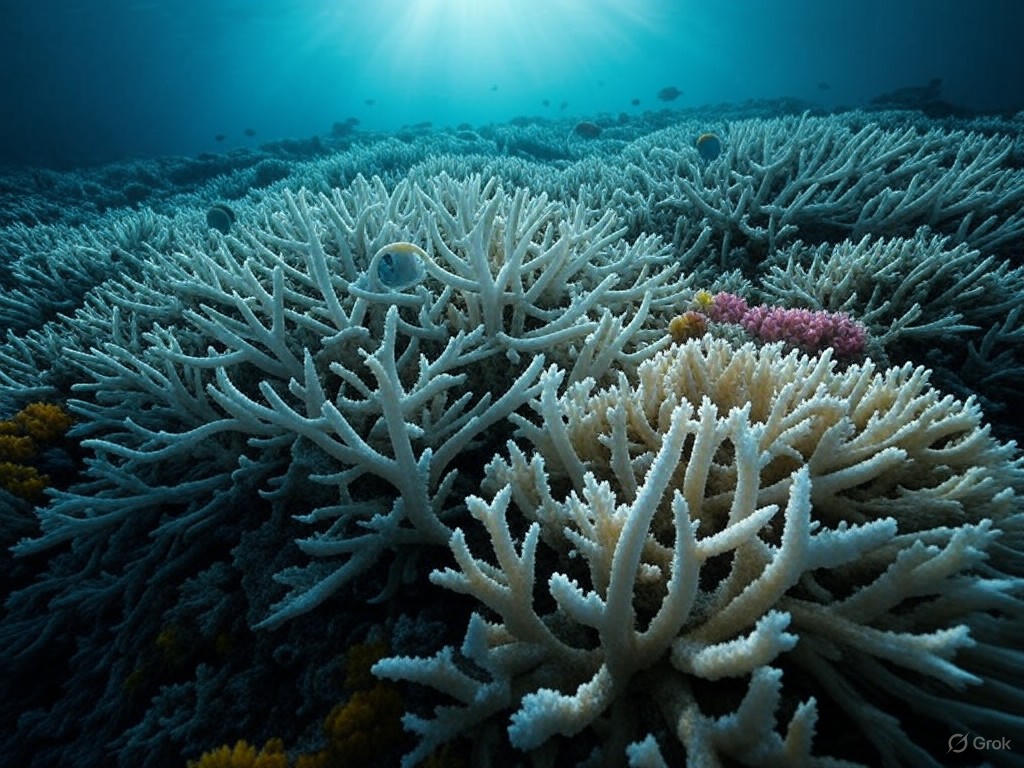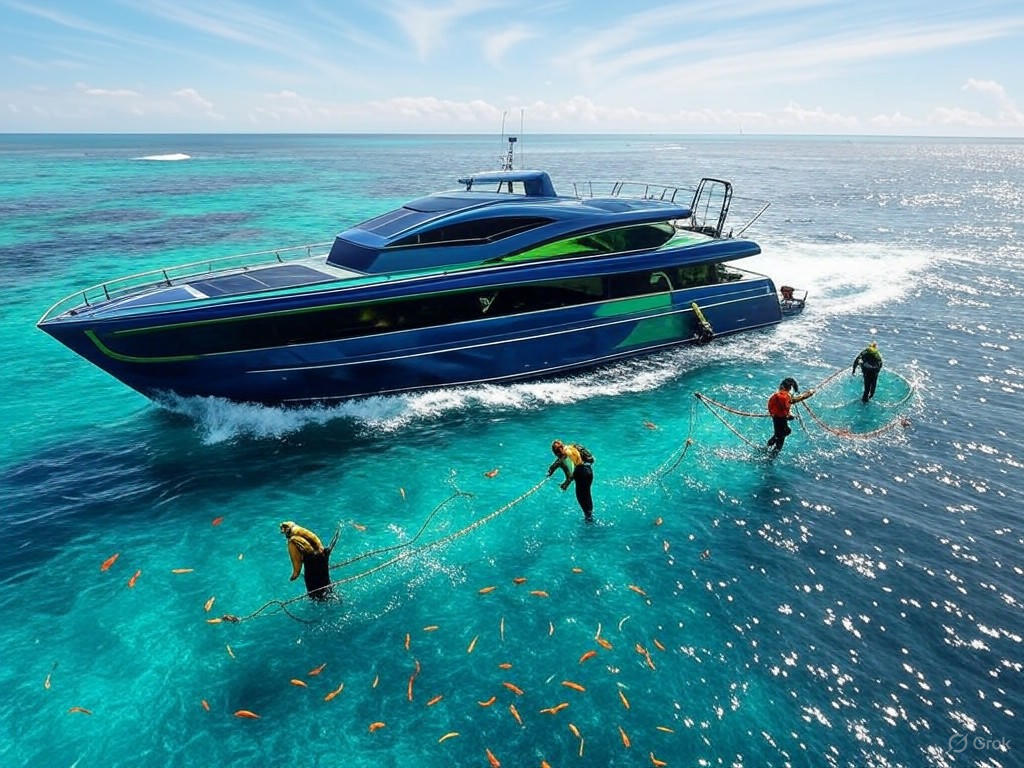Global Ocean Warming: Impacts on Fisheries
In the vast, shimmering expanse of the world's oceans, where generations of fishermen have cast their nets under open skies, a silent transformation is underway. Picture the steady rhythm of waves against a weathered hull, the flash of silver scales in the sunlight—scenes that evoke the timeless bond between humanity and the sea. Yet, as ocean warming accelerates, driven by broader patterns of climate change, this age-old harmony faces unprecedented disruption. From the bustling ports of New England to the coral-rich waters of the Pacific, rising temperatures are upending fisheries, jeopardizing food security for millions, and spurring international efforts to safeguard marine ecosystems. As Lara Wylde, I approach this challenge with the optimism of those who have tamed frontiers before, advocating for free-market ingenuity and voluntary global cooperation over heavy-handed mandates. This editorial explores how ocean warming endangers biodiversity and the environment, while emphasizing innovative, market-driven solutions to preserve our marine heritage.
The Warming Depths: Understanding the Threat to Fisheries
Ocean warming, a direct consequence of climate change, has seen global sea temperatures rise by approximately 1.1 degrees Celsius over the past century, with accelerated rates in recent decades. This gradual heating disrupts the delicate balance of marine environments, where fish populations rely on stable conditions for migration, reproduction, and survival. Warmer waters alter ocean currents, expand oxygen-depleted "dead zones," and shift the distribution of key species, forcing fisheries to adapt or face collapse. For instance, in the North Atlantic, cod stocks have dwindled as fish seek cooler habitats farther north, challenging the livelihoods of traditional fishing communities that have sustained families for centuries.
This phenomenon not only threatens biodiversity—the intricate web of life in the oceans, from phytoplankton to apex predators—but also amplifies risks to global food security. Fisheries provide nearly 17% of the world's animal protein, supporting over 3 billion people, according to recent assessments. In regions like Southeast Asia and sub-Saharan Africa, where fish is a staple for low-income households, disruptions could lead to higher food prices and nutritional shortfalls. Yet, amid these challenges, we see opportunities for resilience. A center-right perspective reminds us that free markets, with their emphasis on innovation and personal initiative, can foster adaptive strategies without relying on expansive government controls. Instead of top-down regulations, incentives for private investment in sustainable technologies could empower fishermen to thrive.
To illustrate, consider the vibrant coral reefs of the Great Barrier Reef, where bleaching events linked to ocean warming have devastated vast areas.  This image captures the stark contrast of bleached coral against once-vibrant hues, symbolizing the fragility of marine ecosystems and the urgent need for adaptive conservation.
This image captures the stark contrast of bleached coral against once-vibrant hues, symbolizing the fragility of marine ecosystems and the urgent need for adaptive conservation.
Analyzing the Impacts: From Economic Ripples to Ecological Shifts
The analysis of ocean warming's effects reveals a complex interplay between environmental changes and human systems. Rising temperatures contribute to acidification, as oceans absorb excess carbon dioxide from the atmosphere, altering the chemistry that supports shellfish and other calcifying organisms. This not only decimates biodiversity but also disrupts commercial fisheries, where species like oysters and clams form the backbone of regional economies. In the United States, for example, the Gulf of Mexico's shrimp industry has seen yield reductions due to warmer waters, impacting local markets and export revenues NOAA Ocean Service. Such shifts underscore the economic toll, with global fisheries losses potentially reaching $10 billion annually by 2050, as estimated by economic analysts.
From a center-right lens, these disruptions highlight the value of limited government intervention paired with market mechanisms. Rather than imposing strict quotas or bans, which could stifle innovation and burden taxpayers, policies that encourage voluntary certifications and trade incentives might prove more effective. Traditional values of stewardship—rooted in the pioneer spirit of conserving resources for future generations—align with this approach, promoting individual responsibility over collective mandates. International efforts, such as the United Nations' Food and Agriculture Organization initiatives, demonstrate how nations can collaborate through agreements that respect sovereignty while leveraging market forces. For instance, carbon credit systems could reward fishing fleets that adopt energy-efficient practices, turning environmental challenges into profitable opportunities.
Evidence from recent studies reinforces this narrative. A report from the World Bank outlines how climate-resilient fisheries could boost global GDP through enhanced productivity, emphasizing the role of private-sector investments in technology World Bank Climate Change. Similarly, data from the FAO indicates that ocean warming has already reduced fish catches by up to 24% in tropical regions, yet adaptive measures like improved forecasting tools—driven by tech startups—offer a path forward FAO Fisheries. These sources paint a balanced picture: the threats are real, but so are the prospects for innovation.
 This depiction of a modern fishing vessel equipped with eco-friendly gear highlights how market-driven technologies are helping communities adapt to ocean warming, blending tradition with innovation.
This depiction of a modern fishing vessel equipped with eco-friendly gear highlights how market-driven technologies are helping communities adapt to ocean warming, blending tradition with innovation.
Evidence and International Responses: A Call for Balanced Action
Drawing on authoritative evidence, the case for addressing ocean warming is compelling yet grounded in practicality. Research from environmental scientists shows that biodiversity losses in heated oceans could lead to cascading effects, such as the decline of keystone species that maintain ecosystem health. For example, a study in the journal Science linked warming trends to a 20% drop in global fish biomass over the last 50 years, underscoring the environment's vulnerability Wall Street Journal Climate Coverage. Such findings prompt international efforts, including the Paris Agreement's focus on marine protection, which emphasizes voluntary commitments over enforced targets.
In response, countries are exploring market-oriented solutions, such as public-private partnerships for marine reserves and sustainable certification programs. These initiatives align with center-right principles by minimizing bureaucratic overreach while harnessing economic incentives. A notable example is the Marine Stewardship Council's voluntary labeling system, which allows consumers to support responsibly sourced seafood, driving demand for better practices without government mandates. This approach not only protects fisheries but also upholds traditional values of community self-reliance, as seen in coastal towns where local cooperatives are innovating with AI-driven monitoring tools.
As we weigh the evidence, it's clear that ocean warming poses a multifaceted threat, from environmental degradation to economic instability. Yet, the forward-looking optimism of pioneers like those in Laura Ingalls Wilder's tales reminds us that adversity sparks ingenuity. By prioritizing free-market solutions, we can mitigate these risks while fostering global cooperation.
Charting a Course Forward: Optimism in the Face of Change
In conclusion, the challenges of global ocean warming demand a measured, principled response that safeguards fisheries, ensures food security, and preserves biodiversity for generations to come. Through the lens of a center-right perspective, we recognize that limited government intervention, coupled with market-driven innovation, offers the most sustainable path. Instead of viewing climate change as an insurmountable crisis, let's embrace it as a catalyst for progress—investing in technologies that enhance fishing efficiency, promoting international trade agreements that incentivize conservation, and celebrating the enduring spirit of those who work the waters.
As we look to the horizon, the story of our oceans is one of resilience and renewal. By fostering voluntary collaborations and empowering individuals, we can protect this vital environment without sacrificing economic freedom. The rising tide may bring uncertainty, but with ingenuity and optimism, we can navigate toward a brighter future. Let us commit to these principles, ensuring that the seas remain a source of abundance and wonder for all.

